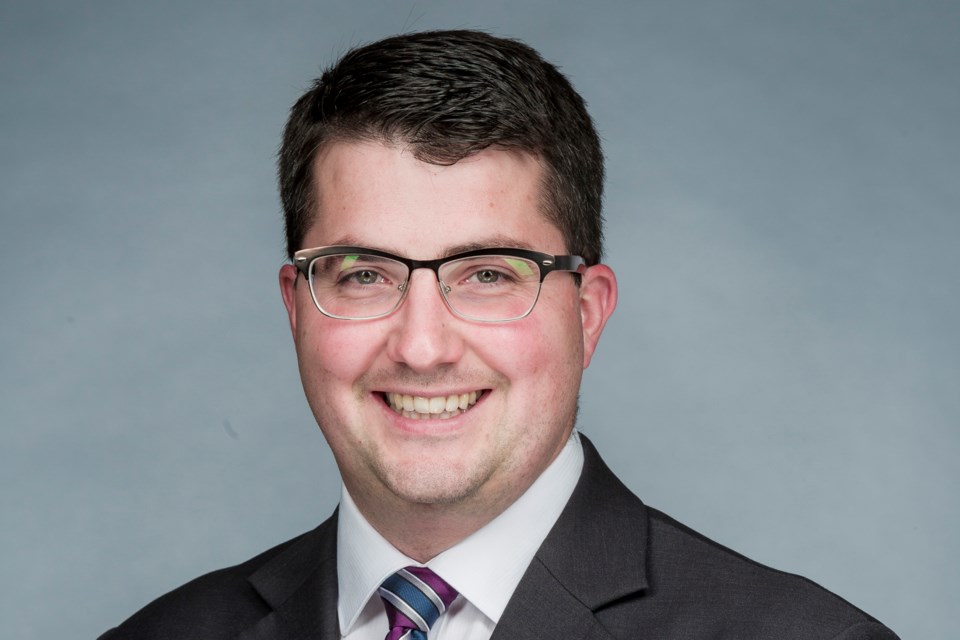MOUNTAIN VIEW COUNTY – A recently-completed $2-million review of Alberta Health Services (AHS), which makes dozens of recommendations for changes to health care in the province, is garnering decidedly mixed reviews.
Nathan Cooper is the UCP MLA for Olds-Didsbury-Three Hills.
“I don’t think people should be concerned about health care in the region,” said Cooper. “The minister has been very clear that there is no intention of closing any rural hospitals.
“The government ran on a commitment of preserving front-line services while at the same time getting better value for our dollar and they are maintaining that commitment.
“At the end of the day, Alberta’s health-care system is at least 20 per cent more expensive per capita than most other Canadian jurisdictions and so AHS is doing some good work to bring those costs more in line with other provinces.”
Released last week, the review was conducted by Ernst & Young and makes recommendations regarding clinical services, non-clinical services, governance and employment, including the following:
• Consider reconfiguration of small/medium community sites based on the validated and agreed access guidelines. AHS should work closely with community in configuring hospital and emergency departments appropriately, with no closures.
• Work with unions and government to remove or revise collective agreement provisions that impede sustainability without providing any patient benefit.
• Review workplace policies and processes to strengthen controls where required to achieve incremental benefits.
• Optimize staffing levels and skill mix across the organization in both nursing and clinical support services through the use of evidence-based approaches.
• Develop a consistent framework for paying physicians' interpretation fees by aligning payments to 50 per cent of the schedule of medical benefits rate as proposed by AHS.
• AHS and Alberta Health should access opportunities to expand the use of non-hospital surgical facilities across the province.
Tyler Shandro is Alberta’s minister of health.
“The AHS review is a key commitment to Albertans, and I’m very excited about moving forward with implementation,” Shandro said. “Every dollar we save will be put right back into the health system to deliver on our promise to improves access and make the system work better for patients.”
The government has accepted the report’s recommendations, except the recommendations for hospital closures or consolidation of urban trauma centres, he said.
The review’s mandate was to investigate opportunities to reduce costs and improve performance by examining AHS’s structure and organization, evaluate AHS programs, services and policies, he said.
The report identifies a range of long-term savings initiatives with the potential to save between $1.5 billion and $1.9 billion, he said.
David Shepherd, NDP Opposition critic for health, said the report “lays the groundwork for wage cuts, job losses, Americanization and cuts to rural services.
“This review presumes the outcome of collective bargaining and physician agreement negotiations that are still underway. It’s clear that this government plans to find savings by laying off Alberta health-care professionals or cutting their pay, particularly in rural areas. This will hurt patient care.”
United Nurses of Alberta president Heather Smith said she believes the Kenney government hopes to use the review as a tool to “take Alberta down a road to substantial health-care privatization” going forward.
“Cherry-picking health-care pay and trying to use that as a club in bargaining to make nurses and other front-line health-care providers alone pay for big cuts the government hopes to make is unjust and certainly won’t impress our members, the majority of who are women,” Smith said.
Joel French is the executive director of Public Interest Alberta, a patient advocacy group.
“If the government adopts the recommendation that 1,300 long-term care patients be placed in designated supportive living, it will mean a significant increase in out-of-pocket costs for Alberta families,” said French.
“Along with the recommendation that long-term care fees to families be increased, this ‘savings’ for government would be a significant increase in costs for seniors who built our province.”
Reducing staffing levels at long-term care facilities would negatively impact patients, many of them seniors, he said.
Trudy Thomson is the vice-president of the Union of Healthcare Professionals.
“I was surprised to hear the current health minister admit the report he released is full of flawed and incomplete information,” said Thomson. “The minister said this report confirms the conclusions in the MacKinnon report. In other words, both reports are just multi-million-dollar exercises to allow the government to push UCP talking points.”
For his part, MLA Cooper says the Kenney government “remains committed to having a universally accessible health-care system” in Alberta.
“There will be all sorts of people who will say all sorts of things about the changes and any time there is significant change that creates a certain level of uncertainty and concern in people,” said Cooper.
“We need to make sure that we are getting good value for the dollars that we are spending and supporting our great medical professionals inside the province of Alberta.”
The province has “tremendous doctors and nurses and other professionals that help make Alberta a world-leading health-care system but at the same time we need to make sure that we are doing that in the most efficient way possible.”
The review report calls for the development of an implementation plan based on the fiscal targets and strategic priorities set by Alberta Health.
“AHS should lead the development of this plan in coordination with Alberta Health within the first 100 days of implementation.”
The complete report is available on the government’s website.



